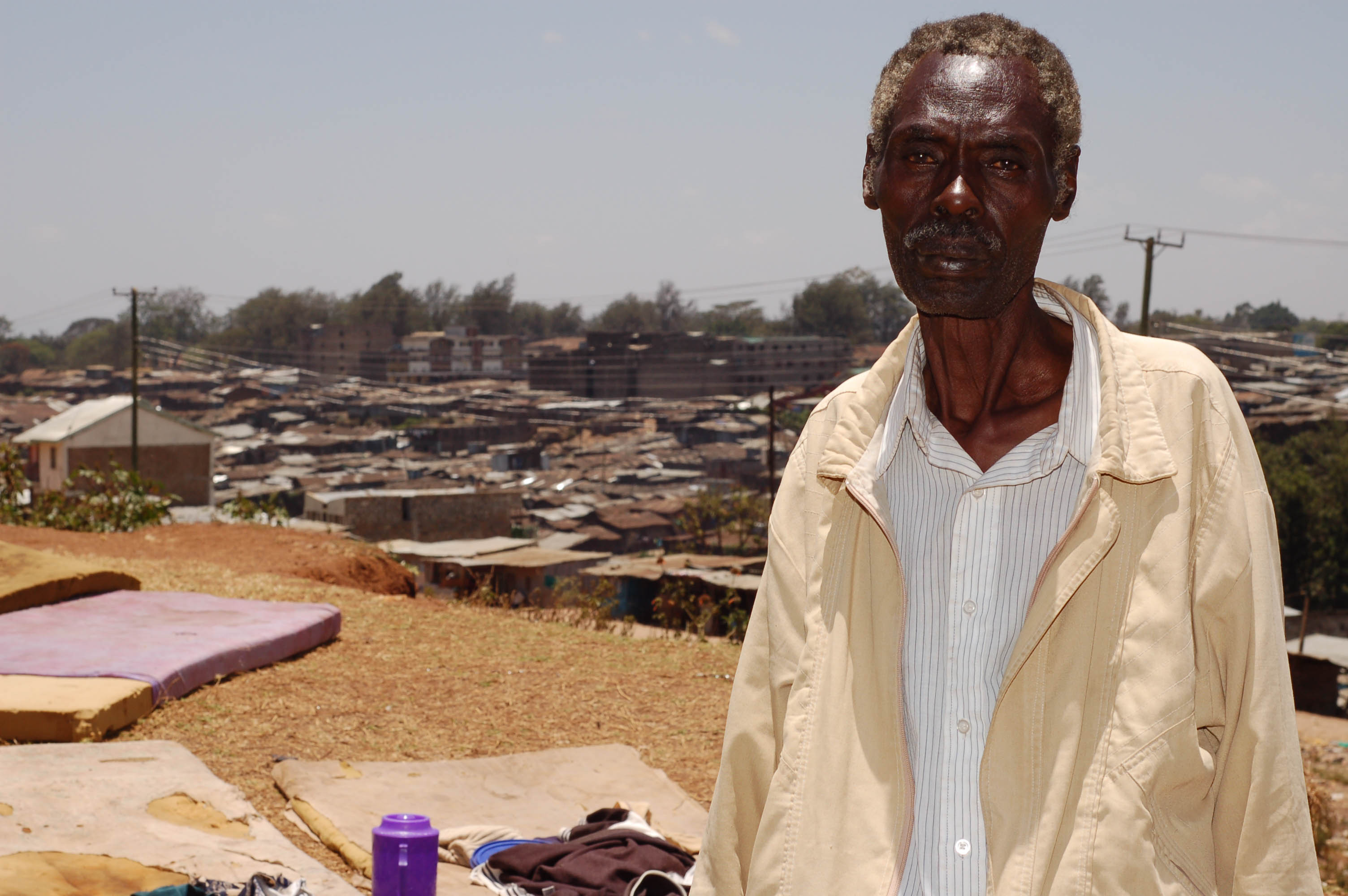Joseph Mbatia, an internally displaced person (IDP) in the Kenyan capital, Nairobi, would like to return home to Mathare, one of the city's larger slums, but only if reconciliation is part of the deal.
"It is well and good to see our leaders at the national level shake hands and agree to work together but the situation on the ground has not changed; I cannot go back home because no one has addressed the reasons for my displacement," Mbatia told IRIN on 12 March at the Mathare police post depot which he, and 648 other IDPs, have called home since 29 December when post-election violence erupted in parts of the country.
He said: "Someone needs to explain to me how I can go back to my house yet all the neighbours who showed me so much hostility are still there. Some of them are even occupying the rooms I used to let and they do not pay me any rent. How will I live with them? Who will explain to them that we need to live together without suspicion?"
The government recently announced that plans to relocate thousands of IDPs across the country were complete and would be implemented "soon".
However, the issue of reconciliation and dialogue among communities that took opposing sides during the poll-related violence has not featured prominently in the relocation efforts.
Several other IDPs at the Mathare police depot share Mbatia's sentiments about returning to their homes and have vowed to stay put.
 Photo: Allan Gichigi/IRIN  |
| Displaced women at the Mathare police depot in Nairobi. In the background is a section of Mathare, one of the city's larger slums |
The political crisis that hit Kenya in January and February following disputed presidential elections led to the deaths of at least 1,500 people and the displacement of some 300,000 to IDP camps as well as hundreds of thousands more who sought refuge with neighbours, friends and relatives.
At the Mathare depot, displaced women and children are slightly better off than the men; they sleep in a social hall although the mattresses and blankets are inadequate.
Most of the IDPs say the government needs to address three issues necessary for their relocation: security, help to restart looted or destroyed businesses and to rebuild homes for those who owned them or help for those who rented their houses to move to new premises.
Compensation
Josephat Njenga, assistant secretary of the camp, told IRIN that financial aid for the IDPs was crucial as the houses they lived in before the violence were either burnt, looted or destroyed. "We are asking the government to provide us with some cash to help us restart our businesses, rent houses and get our lives back to normal; as you can see we have many children who are not in school, some at the nursery, primary and secondary level, what will become of them?"
Njenga, who was a security guard before the violence, failed to get his December salary due to "being blocked from seeing the boss. When I got displaced, I explained to my employer that I was unable to report to work; later I tried to get my salary but I was blocked by an immediate supervisor from seeing the boss," he said. "I believe I was blocked because my supervisor comes from the community that was fighting my community."
Nelius Njoki, the camp's secretary, proposed that the IDPs at the depot be moved to a new place altogether.
 Photo: Allan Gichigi/IRIN  |
| Women ponder their fate at the Mathare police post IDP site |
Joseph Kinyua, another IDP at the Mathare depot, said: "We have not refused to go home. We need an assurance of long-term security, not just security for three days or so. If we are escorted home and the security is withdrawn a few days later, what guarantee do we have that we will not be displaced again?"
js/eo/mw
This article was produced by IRIN News while it was part of the United Nations Office for the Coordination of Humanitarian Affairs. Please send queries on copyright or liability to the UN. For more information: https://shop.un.org/rights-permissions




